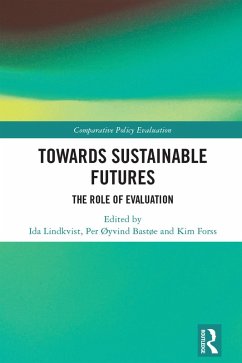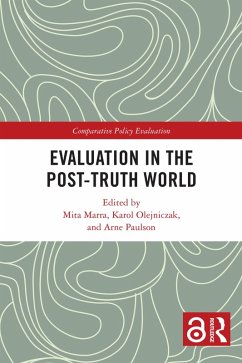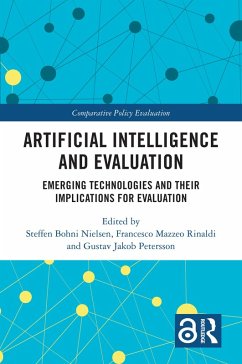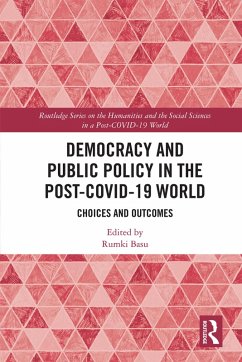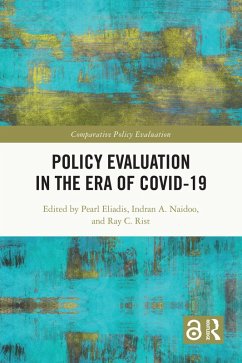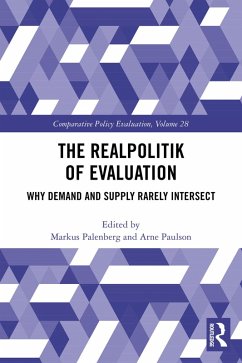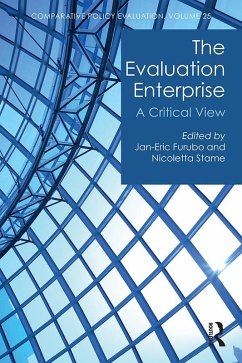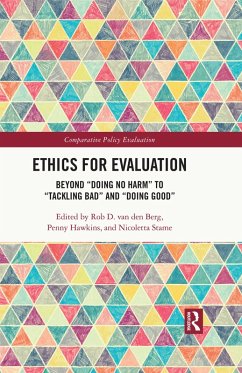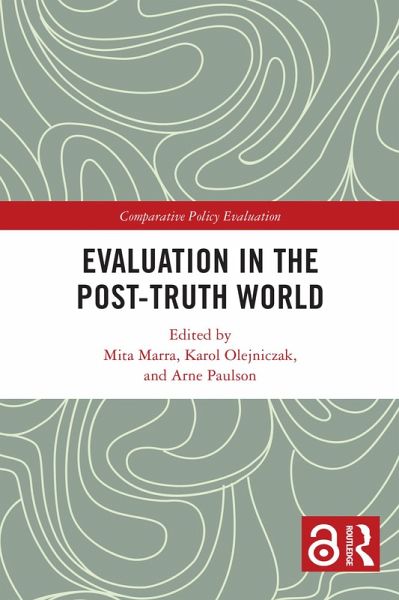
Evaluation in the Post-Truth World (eBook, PDF)
Versandkostenfrei!
Sofort per Download lieferbar
39,95 €
inkl. MwSt.
Weitere Ausgaben:

PAYBACK Punkte
20 °P sammeln!
Evaluation in the Post-Truth World explores the relationship between the nature of evaluative knowledge, the increasing demand in decision-making for evaluation and other forms of research evidence, and the post-truth phenomena of antiscience sentiments combined with illiberal tendencies of the present day. Rather than offer a checklist on how to deal with post-truth, the experts found herein wish to raise awareness and reflection throughout policy circles on the factors that influence our assessment and policy-related work in such a challenging environment. Journeying alongside the editor and...
Evaluation in the Post-Truth World explores the relationship between the nature of evaluative knowledge, the increasing demand in decision-making for evaluation and other forms of research evidence, and the post-truth phenomena of antiscience sentiments combined with illiberal tendencies of the present day. Rather than offer a checklist on how to deal with post-truth, the experts found herein wish to raise awareness and reflection throughout policy circles on the factors that influence our assessment and policy-related work in such a challenging environment. Journeying alongside the editor and contributors, readers benefit from three guiding questions to help identify specific challenges but tools to deal with such challenges: How are policy problems conceptualized in the current political climate? What is the relationship between expertise and decision-making in today's political circumstances? How complex has evaluation become as a social practice?
Evaluation in the Post-Truth World will benefit evaluation practitioners at the program and project levels, as well as policy analysts and scholars interested in applications of evaluation in the public policy domain.
Chapters 6, and 11 of this book are freely available as a downloadable Open Access PDF at http://www.taylorfrancis.com under a Creative Commons [Attribution-Non Commercial-No Derivatives (CC-BY-NC-ND)] 4.0 license.
Evaluation in the Post-Truth World will benefit evaluation practitioners at the program and project levels, as well as policy analysts and scholars interested in applications of evaluation in the public policy domain.
Chapters 6, and 11 of this book are freely available as a downloadable Open Access PDF at http://www.taylorfrancis.com under a Creative Commons [Attribution-Non Commercial-No Derivatives (CC-BY-NC-ND)] 4.0 license.
Dieser Download kann aus rechtlichen Gründen nur mit Rechnungsadresse in A, B, BG, CY, CZ, D, DK, EW, E, FIN, F, GR, HR, H, IRL, I, LT, L, LR, M, NL, PL, P, R, S, SLO, SK ausgeliefert werden.




